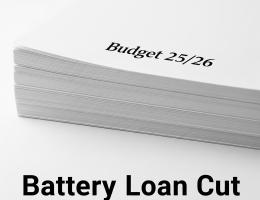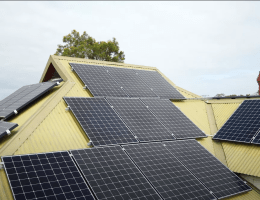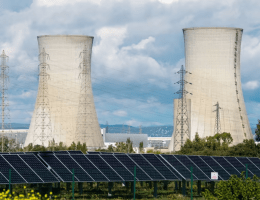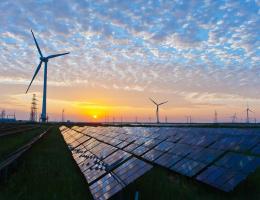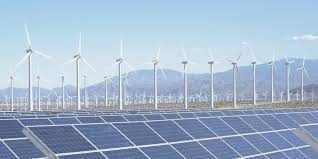
On Disrupt Radio’s “Moolah Mornings,” host Omar de Silva welcomes Matthew Wright, CEO of Pure Electric, to delve into the transformative dynamics of the renewable energy landscape. In this insightful conversation, Wright discusses the significant roles of government policy, technological advances, and economic factors in shaping the renewable energy sector, highlighting both the progress made and the challenges that remain. He emphasises the critical need for innovation and coherent policy frameworks to accelerate the shift toward sustainable energy solutions.
Evolution and Impact of Renewable Technologies
Matthew Wright traces his transformation from a climate and energy campaigner to the CEO of Pure Electric. He began his activism in 2001, collaborating with Melbourne University to release the Zero Carbon Australia projects, pioneering plans aimed at transitioning an economy to 100% renewable energy. Wright reflects on the financial limitations of activism, which led him to establish Pure Electric in 2014. His company is dedicated to revolutionising household energy by eliminating gas usage and harnessing renewable energy, efficient heat pumps, battery storage, and electric vehicle charging systems.
Discussing the economic viability of renewable technologies, Wright highlights significant advancements in solar energy: “10 years ago, a solar panel per watt would have cost, let's say just one unit to measure it in, it would have cost like $2.50, wholesale, and now it costs like 19 cents.” He emphasises that these drastic reductions are not just about savings but also about increasing accessibility and environmental sustainability.
Wright also comments on the evolving dynamics of government support, which has diminished over time as technology costs have decreased: “It's always a moving space,” Wright explains. “The government support is lessened. But that's almost acceptable to some extent, and by design. And that's because the cost of renewable energy technology just keeps going down, down, down.”
Government Policy and Its Impact
Matthew Wright delves into the pivotal role of government in shaping the renewable energy landscape. He highlights how inconsistent governmental support and the lack of a cohesive vision have significantly impacted the pace of transitioning to renewable sources. Wright directly attributes these challenges to political factors: “Lack of vision and political uncertainty is what's caused that to occur,” he states. He suggests that a more committed approach would have advanced the development of a renewable energy grid much further: “If we'd actually gone full steam ahead... into a renewable energy grid... we'd be well down the track.”
Wright further reflects on the historical efforts to increase Australia's renewable energy capacity, particularly through the Zero Carbon Australia stationary energy plan initiated in 2010 with the Melbourne University Energy Institute. At that time, renewable sources contributed less than 10% to the national electricity grid, a stark contrast to the situation today. “When we did the Zero Carbon Australia stationary energy plan version one back in 2010... it was a much more difficult task than if you map out the task from today,” he explains. Wright points out the considerable progress since then, noting, “So our starting point was less than 10% renewables; we’re now at about 38% renewables on the electricity grid.”
This rise in renewable energy adoption, despite earlier challenges, illustrates the impact of sustained efforts and evolving technologies on achieving significant progress. Wright’s insight into the development underscores the complex interplay between governmental actions and technological advancements in shaping the energy sector’s trajectory. He emphasizes that while political challenges have slowed progress, the technological and economic feasibility of renewables has improved dramatically, creating new opportunities for growth and transition.
Economic Realities of the Green Transition
Wright emphasizes the key economic implications of the reduced cost of renewable technologies, particularly solar power. He explains that the affordability and scalability of these technologies have improved dramatically, making the transition more feasible than ever before. Despite the reductions in technology costs, Wright points out an increase in overall energy prices, a paradox he attributes to a lack of vision and political uncertainty. He suggests that clearer policies and less political interference could have facilitated a more rapid and cost-effective transition, emphasizing the crucial role of government support in achieving sustainable energy goals.
Infrastructure and Grid Integration Challenges
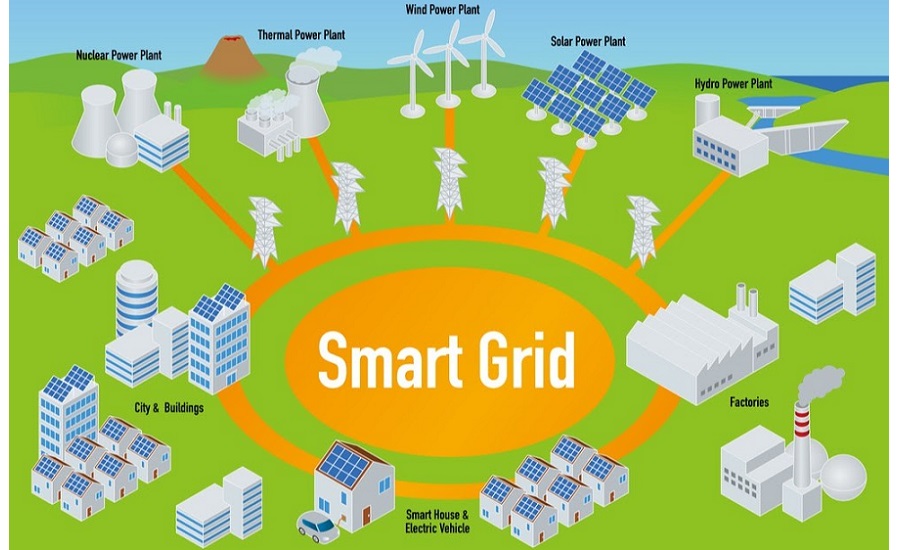
Matthew Wright addresses the significant challenges of integrating renewable energies into existing power grids, which are often underutilised and designed for peak loads that occur infrequently. He advocates for smarter integration strategies that make better use of existing capacities and incorporate modern technologies. "The grid spends most of its time idle, just like your car spends 90% of its time parked," Wright explains, emphasising the need for a more adaptable grid system that can handle the variable nature of renewable energy sources such as solar and wind.
He elaborates on the potential for high penetration of renewables without extensive infrastructure upgrades, "We can use a lot of modern smarts to mean we can minimise the spend to integrate it; we can take advantage of existing like Transformers in the sub-networks to be able to have high penetrations of solar easily double what we have now without doing anything." This statement underscores the feasibility of integrating higher levels of renewable energy with current technologies and smarter grid management.
Wright also critiques the motives of grid operators who may resist more efficient pricing mechanisms and public education, as they benefit financially from increasing consumption. He specifically addresses the contentious issue of the proposed solar tax by Ausgrid in New South Wales, that Ausgrid wants to appropriate half up to half of what people get paid for exports into the grid. Wright argues that such policies significantly impede the progress of renewable energy by disincentivizing solar energy exports from households, thereby slowing the transition to renewable energy.
Public Perception and Market Dynamics
Wright elaborates on the changing dynamics in the renewable energy market, driven by significant cost reductions and technological advancements. He highlights how these changes are making renewables more economically viable and competitive against traditional energy sources. Wright stresses the importance of continued innovation and development to sustain the momentum towards renewable energy, enhancing its attractiveness as a practical energy option.
Global Strategies and Local Actions
In discussing the global adoption of renewable energy technologies, Wright highlights the opposition from incumbent industries deeply invested in traditional energy forms. Despite this, he remains optimistic about the potential for renewable technologies, driven by undeniable economic and environmental benefits and supported by a growing global recognition of their value. Wright argues that the barriers erected by established energy companies are gradually being overcome as the benefits of renewable energy become too significant to ignore.
Omar de Silva concludes the interview by acknowledging the rich insights provided by Matthew Wright, emphasising the transformative potential within the renewable energy sector. He highlights the need to address both technological innovations and policy frameworks to fully capitalise on the opportunities presented by renewable energy.
The interview with Matthew Wright provides a profound look into the dynamic shifts occurring in the renewable energy sector. His conversation with Omar de Silva underscores the critical need to adopt and expand renewable technologies rapidly. Wright stresses the importance of cohesive policy frameworks and international cooperation to facilitate this transition effectively. His insights shed light on the necessary steps towards realising a sustainable and economically viable energy future, highlighting how strategic actions now can lead to significant long-term benefits.
